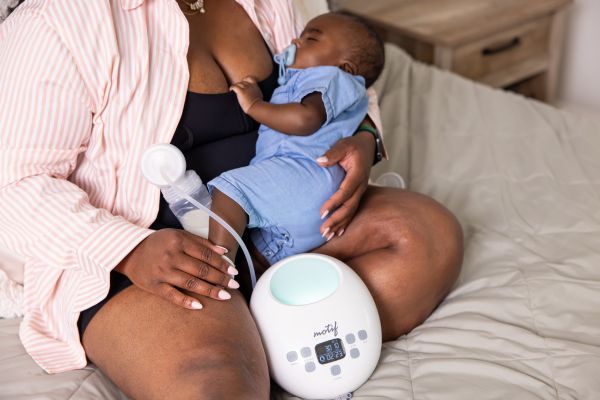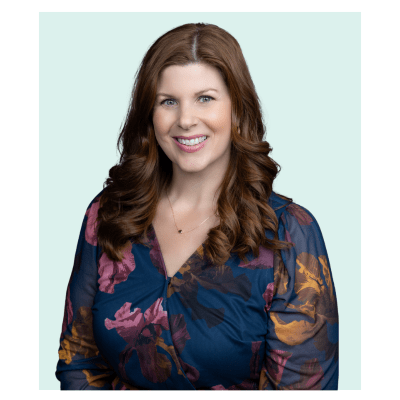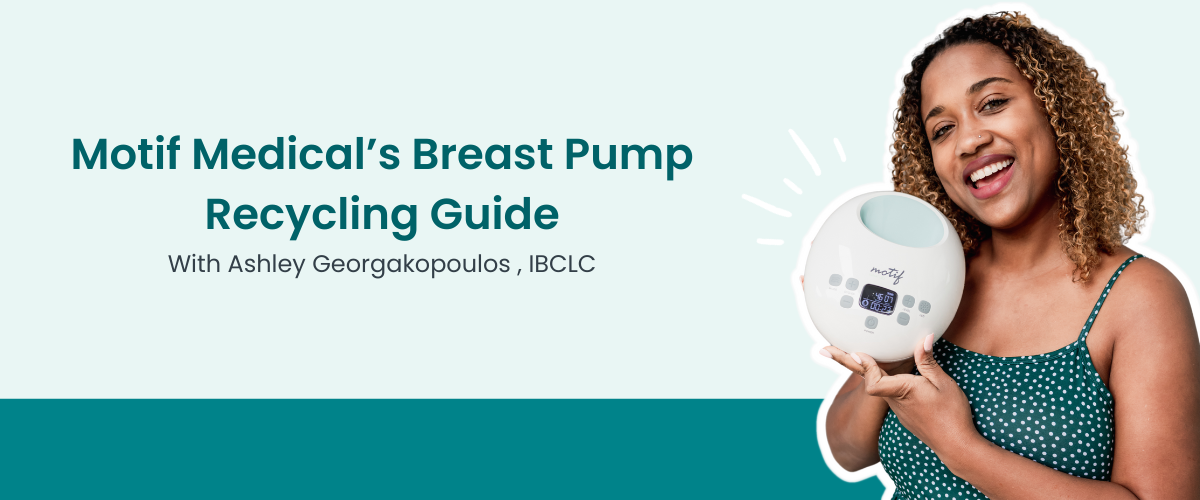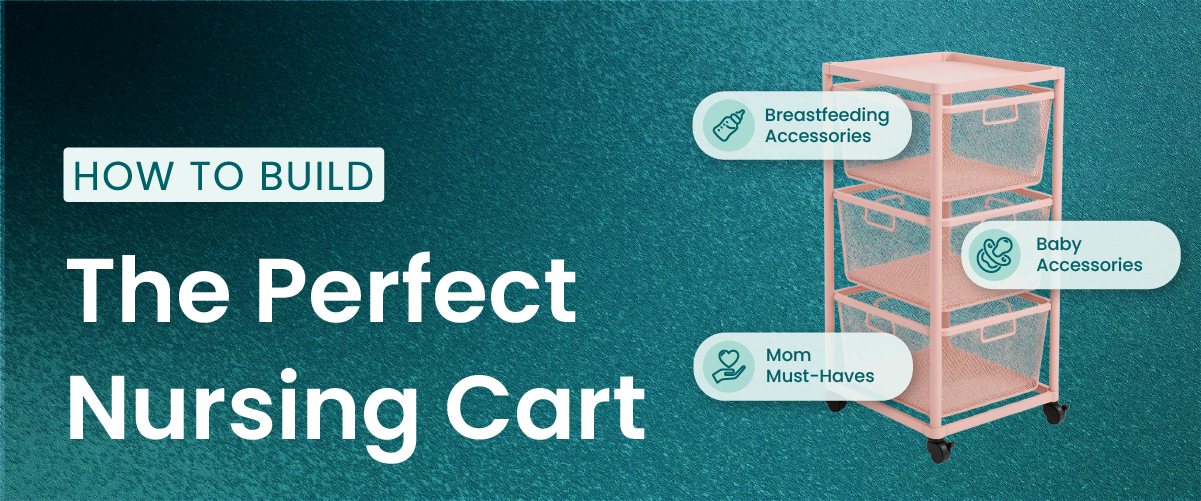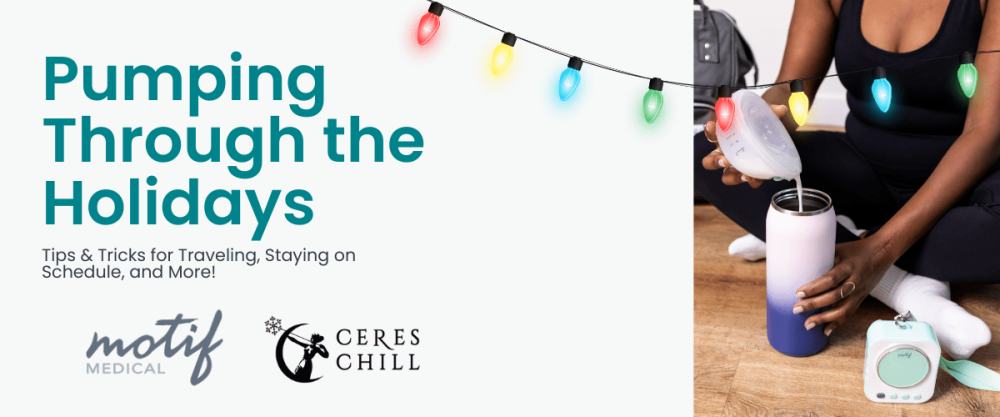Worrying about overfeeding a newborn is one of the most common concerns for new parents. The answer depends entirely on how you're feeding. It is uncommon for a breastfed baby to be overfed because they are feeding directly from the breast, allowing for a more natural and controlled feeding experience. However, it is possible, and quite common, to overfeed a newborn when using a bottle. This is true whether the bottle contains breastmilk or formula.
This article will walk you through why that is, the real signs of an overfed newborn, and how to know when your baby is full.
Can You Overfeed a Breastfed Baby?
The short answer is: it's quite uncommon.
While it is common for babies to want to feed frequently (cluster feed) and sometimes gain weight more quickly early on, feeding directly from the breast is a scenario that does not contribute to overfeeding.
The composition of breastmilk is perfectly designed to meet their energy needs. It has an exact ratio of fats, carbohydrates, and proteins that are easily absorbed, which helps regulate hunger and fullness cues.
The pace is a huge factor. Breastfeeding is active work for your baby, and the milk is typically released slowly. This gives their stomach enough time to communicate to their brain when they feel full. Once your baby is back at birthweight (around 2 weeks) and is gaining weight on a steady curve, it is important to allow them to eat on demand based on their hunger cues, end feedings out of fear of overfeeding.
If a mother has a large oversupply, coupled with a fast flow, it is possible, though rare, for her breastfed baby to drink too much too quickly. Excessive weight gain, frequent tummy upset, coughing/sputtering at the breast, and short feedings can be related to an excessive oversupply. It is essential to work with an experienced IBCLC (International Board Certified Lactation Consultant) to help manage a problematic oversupply while ensuring that your baby is receiving an appropriate amount of breastmilk.
Can You Overfeed a Newborn with Breast Milk in a Bottle?
Yes. The risk isn't the milk itself, but the delivery method. When a baby nurses at the breast, they actively control the flow of milk. They must suck to trigger a letdown and can pause to breathe and rest. This active process and pacing give the brain time to register fullness.
With a bottle, even one with a "slow-flow" nipple, gravity and suction create a much more consistent and faster flow. This can easily override a baby's natural self-regulation, causing them to consume more milk than they need before their fullness cues take effect. So, even with breast milk, a newborn can be overfed if the pace of the bottle is too fast.
Can You Overfeed a Newborn on Formula?
Yes. The risk is identical to bottle-feeding breastmilk, as the problem lies with the bottle's mechanics, not its contents. You can absolutely overfeed a baby formula for the same reason.
Even the best "slow-flow" nipples don't truly replicate the work of breastfeeding. The milk comes out faster and more consistently, making it easy for a baby to drink more than they need before their brain signals that their stomach is full. This is why practicing paced bottle feeding is so important, regardless of what is in the bottle.
Is Spit Up a Sign of an Overfed Newborn?
Seeing your baby spit up can be alarming, and it’s a primary reason parents worry about overfeeding. However, it’s important to understand that spit-up is a very common and usually normal part of infant development.
The muscular valve at the top of a baby's stomach (the lower esophageal sphincter) is still immature and doesn't close tightly. This allows stomach contents to easily flow back up, especially when their tummy is full.
While this is normal, the amount and frequency of spit-up can sometimes be a clue. It is rarely a sign of overfeeding from the breast, but it can be a primary symptom of overfeeding from a bottle. When a baby takes in milk from a bottle faster than their stomach can comfortably handle, their natural response is to spit up the excess.
Common Causes for Spit Up
Beyond a simple full tummy, several factors can contribute to spit-up:
-
Fast Flow or Pace: Gulping air from a fast-flowing bottle or a fast breastfeeding letdown can lead to spit-up.
-
Movement: Being bounced or laid flat too soon after a feed.
-
Swallowing Air: This can be from crying, gulping when drinking too fast from a bottle, an improper latch, or a tongue-tie that prevents a good seal.
-
Simple Reflux (GER): Most infants experience simple reflux, characterized by spitting up without pain. This is normal, and they are often referred to as "happy spitters."
Overfeeding from a Bottle: This is a key cause, as the baby's stomach can't comfortably hold the volume.
Common Myths About Spit Up
- MYTH: Healthy babies shouldn't spit up.
- FACT: Most healthy babies spit up regularly. It's a normal result of their immature digestive system.
- MYTH: The mother's diet is causing the spit-up.
- FACT: This is very rare. A true food allergy typically involves other symptoms, such as rashes, hives, or bloody stools, not just spit-up.
- MYTH: Formula-fed babies spit up less.
- FACT: The opposite is often true. Because it is much easier to overfeed a baby with a bottle, they may spit up more.
How to Know if Your Baby is Full
Instead of watching the clock, watch your baby. This is the number one way to gauge fullness and avoid overfeeding your baby. When your baby is full, they will often release the breast or bottle on their own. Their body should be relaxed, and their fists unclenched. They may seem "milk drunk" or fall asleep. Old advice to feed for "15 minutes per side" is outdated. Allow your baby to actively feed on the first breast until they release, stop actively suckling, or get fussy, then offer the other side. They may not need it every time.
Understanding Hunger Cues & Cluster Feeding
For the first few months, a healthy baby will do a lot of sleeping and eating. It's also common for them to "cluster feed", a stretch of feedings that occur back-to-back, often in the evening. This may be followed by a longer stretch of sleep.
When not understood, a mother may think she's overfeeding or her supply is low. In reality, cluster feeding is normal and is your baby's way of boosting your milk supply to meet their needs.
Especially during a growth spurt (like the first one around 2-3 weeks).
What Are the Signs of an Overfed Newborn?
The signs of an overfed baby vary depending on the method of feeding.
- At the breast: This is not a primary concern. Frequent spitting up is likely due to one of the other causes listed above, not overfeeding.
-
With a bottle: These are the key overfed newborn symptoms to watch for:
-
Frequent, large spit-ups immediately after most feeds.
-
Rapid weight gain (consistently jumping up major percentiles).
-
Extreme fussiness, gas, or colic-like symptoms after eating.
-
Choking or gagging during bottle feeds.
-
What Happens If You Overfeed a Newborn?
In most cases, they will just spit up the excess. But chronic overfeeding (which, again, is a risk with bottles, not the breast) can lead to significant discomfort, gas, GERD, and an over-stretched stomach.
If you are bottle-feeding, be sure to pay close attention to the amounts. While every baby is different, it's helpful to know what a typical amount of milk is for a newborn. Breastfed babies typically reach a maximum of 4-5 ounces per feeding, even when they are older. The average daily intake for breastfed babies is about 25 ounces in 24 hours from 1-6 months of age (when solids are introduced). Since breastfed newborns should be fed at least 8-12 times per day, their feeding volumes can range from 2.5 - 5 ounces per feeding.
Trust Your Baby, Trust Your Body
Whether you were worried about overfeeding your newborn or just wanted to be sure you're on the right track, the most important takeaway is to trust your baby's cues. Their body is designed to regulate its own intake, especially at the breast. If you are bottle-feeding, practicing paced feeding can help you follow their lead.
Whether you are exclusively pumping or building a supply for paced bottle-feeding, having the right tools makes all the difference. Motif Medical breast pumps are designed to support your journey with comfort and efficiency.
Our breast pumps are engineered to help you express more milk in less time, with hospital-grade suction and customizable modes that mimic your baby's natural nursing patterns. With whisper-quiet motors and lightweight, portable designs, you can confidently build your supply wherever you go.
Information provided in blogs should not be used as a substitute for medical care or consultation.


